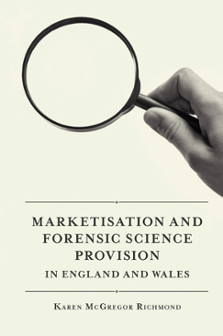
Index
Marketisation and Forensic Science Provision in England and Wales
ISBN: 978-1-83909-124-7, eISBN: 978-1-83909-123-0
Publication date: 14 November 2022
Citation
Richmond, K.M. (2022), "Index", Marketisation and Forensic Science Provision in England and Wales, Emerald Publishing Limited, Leeds, pp. 165-171. https://doi.org/10.1108/978-1-83909-123-020221009
Publisher
:Emerald Publishing Limited
Copyright © 2023 Karen McGregor Richmond
INDEX
Note: Page numbers followed by “n” indicate notes.
- Prelims
- Chapter 1: The Forensic Market
- Chapter 2: Forensic-Scientific Processes
- Chapter 3: Exploring the Forensic Field
- Chapter 4: The Commodification of Forensic Science
- Chapter 5: Constructing Forensic Expertise
- Chapter 6: Swift and Sure Justice?
- Chapter 7: Objectivity – ‘The View from Nowhere’
- Chapter 8: From Biological Substrate to Digital Analyte
- References
- Index